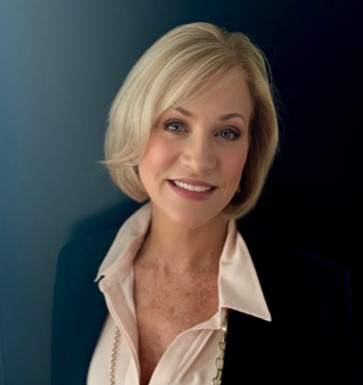Our Voices Matter!
Making a Difference Through Advocacy
By Cheryl Lewis

As we enter another new chapter for this country and manage the implications it may have for our industry, Frederick Douglass’ words ring true. If we want to ensure that we have a voice in our future, we need to make respectful demands through advocacy. And, as my mother used to say, “Doing nothing results in nothing.” So, let’s do something and make our voices heard.
As an industry, we have the opportunity – and the duty – to get the attention of our representatives in Congress. In June 2025, SBCA is holding its Q2 Open Quarterly Meeting (OQM) in our nation’s capital, Washington, D.C. This meeting will be around HUD’s annual Innovative Housing Showcase, where members of SBCA will band together to build a house on the National Mall (learn more at www.sbcacomponents.com/IHS). To take full advantage of our presence in Washington, D.C., the SBCA Advocacy Committee is leading a fly-in on June 4, 2025, to descend on Capitol Hill and meet with our policymakers and representatives.
Power concedes nothing without a demand. It never did and it never will.” ~ Frederick Douglass
There is no better time for us to organize and meet with our representatives to let them know how we contribute to national and local economies and help them understand how legislation can help or hurt our ability to continue to provide employment, accelerate housing, and contribute to the success of our national economy.
Two of the issues that should be on our minds right now are:
Workforce – According to a Pew Research study, at least 15% of all construction workers are illegal immigrants and another 25% are in the U.S. with temporary status. In many parts of the country, these percentages are much higher. At the same time, the Associated Builders and Contractors (“ABC”) estimates that the industry needs at least 450,000 new workers in 2025 to meet industry demand. This estimate presumes a slowing of construction spending which experts say is counter to what the industry is predicting. Deportation of illegal and temporary workers could be devastating to the construction industry. While the reduction in skilled workers could lead to more interest in offsite manufactured and prefabricated components, the lack of workers in the field could severely impact investment in construction and reduce the demand for our products.

Tariffs – We all remember the tremendous fluctuations in the price of lumber and steel during the pandemic and the shortages, uncertainty, and delays we faced as a result. According to Anirban Basu, ABC’s chief economist, “New or increased tariffs have the potential to raise prices for a wide range of construction inputs, including items produced domestically that compete with imports.” Tariffs on lumber and steel significantly increase the cost of construction and could impact housing starts and affordability.
If you agree that these are issues that could impact your business and your employees, what can and should you do?
Years ago, when I made my first foray into advocacy in Washington, D.C., Senator John McCain shared with me that nothing impacted his decision-making more than face-to-face visits with his constituents. He said that when a constituent took the time to come to his office and spend time explaining their needs and positions, it was his duty to give them his attention.
To really make an impact on and protect our industry, we need to heed the late Senator McCain’s advice and have those face-to-face meetings with the people we elected to represent us. At the same time, it is important to remember that these elected officials have limited time and resources. The more we can do to prepare for our meetings with them, the better the outcome we can expect.
Prepare: Before meeting with your representatives, compile information that will help them understand your business and the impact it has on their constituency. How many people do you employ? How much did your business and its employees contribute in taxes and how many ancillary jobs were created by your business?
Present: Your representatives are busy people so be sure you have prepared a concise, powerful message to share with your representatives and their teams. Specifically, you should be ready to help them understand how your business could be impacted – positively or negatively – by legislation.
Propose: Think about Frederick Douglass’ statement and be prepared to make your demand. What can (and should) your elected official do to help you be competitive and successful? State your case with a well-supported, concise demand for action.
Post-op: Like any endeavor, follow-up is critical. Squeaky wheels really do get the grease, so be sure you, your employees, and colleagues are ready to bombard your representatives with emails and phone calls thanking them for their time and clearly stating what you want from them. I will never forget a staffer telling me that they received a “tsunami” of directives from constituents on an issue. When I asked what they meant, they said they received 20 emails demanding action. A little goes a long way in the political arena. We can certainly send 20 emails!
I hope you will mark your calendars and plan to join the SBCA Advocacy Committee for its Fly-In on Capitol Hill. Visit www.sbcacomponents.com/Fly-In for more information on this event and to register to attend. Together, we can change the course of history for our industry.
For more information and to register for the Washington, D.C. SBCA OQM, please visit www.sbcacomponents.com/open-quarterly-meetings.
For more information on or to join SBCA’s Advocacy Committee, please visit www.sbcacomponents.com/advocacy-committee or reach out to SBCA Staff or SBCA Advocacy Committee Chairs at info@sbcacomponents.com.

Cheryl Lewis serves on SBCA’s Advocacy Committee as its co-chair and believes that the association has an opportunity to set industry standards that benefit and protect framing partners, members, and consumers. Her goals are to help engage members to elevate SBCA’s mission and to also help legislators, regulators, and enforcers understand this industry’s products, solutions, and benefits that they bring. Cheryl was previously the CEO and founder of NVO Construction, a greenfield components manufacturer in Reno, NV, and served on SBCA’s Board of Directors from 2022 to 2025. Cheryl earned her Bachelor of Arts in Accounting from Salem College and her Juris Doctorate from Washington & Lee University School of Law, in addition to holding an Executive Certificate in Global Corporate Responsibility and Sustainability from Thunderbird School of International Management. She formerly practiced as a CPA, lawyer, lobbyist, public relations specialist, and investment analyst. With her broad background in law, politics, accounting, and PR, Cheryl brings a unique perspective to SBCA’s advocacy efforts.
